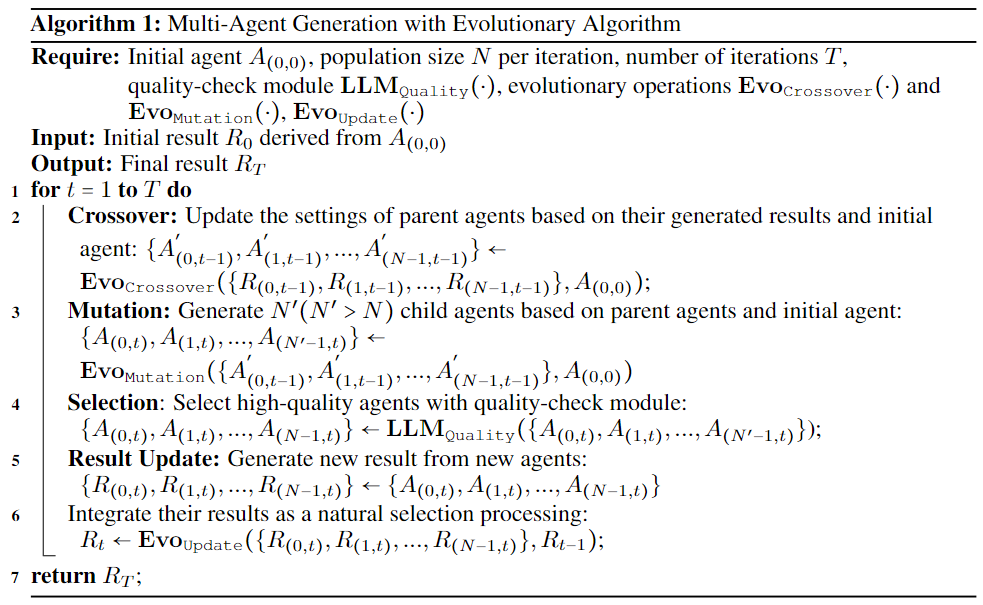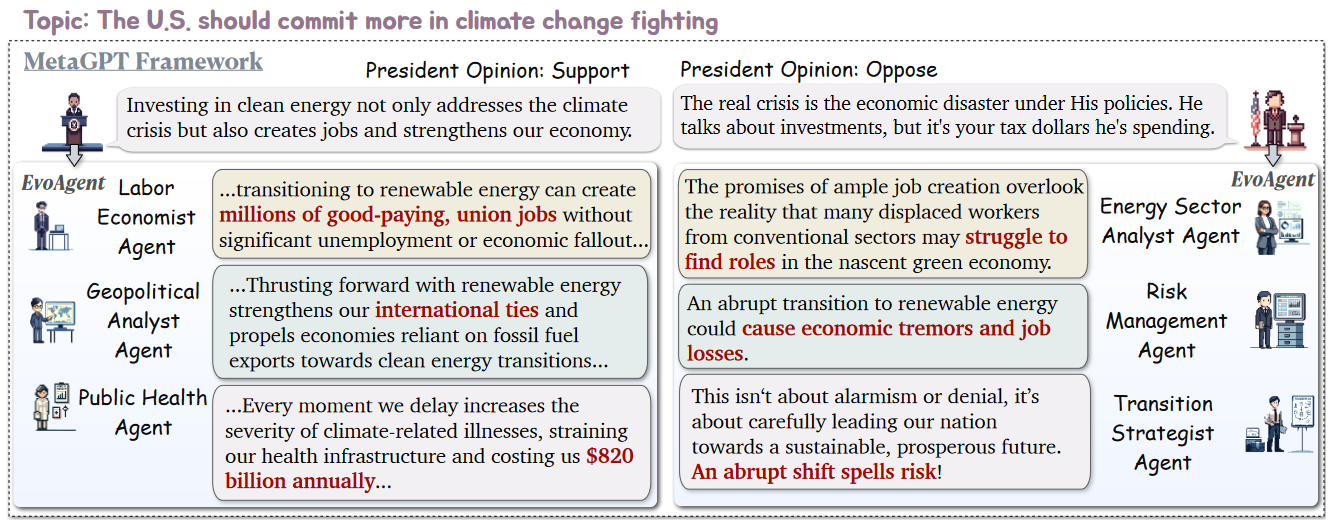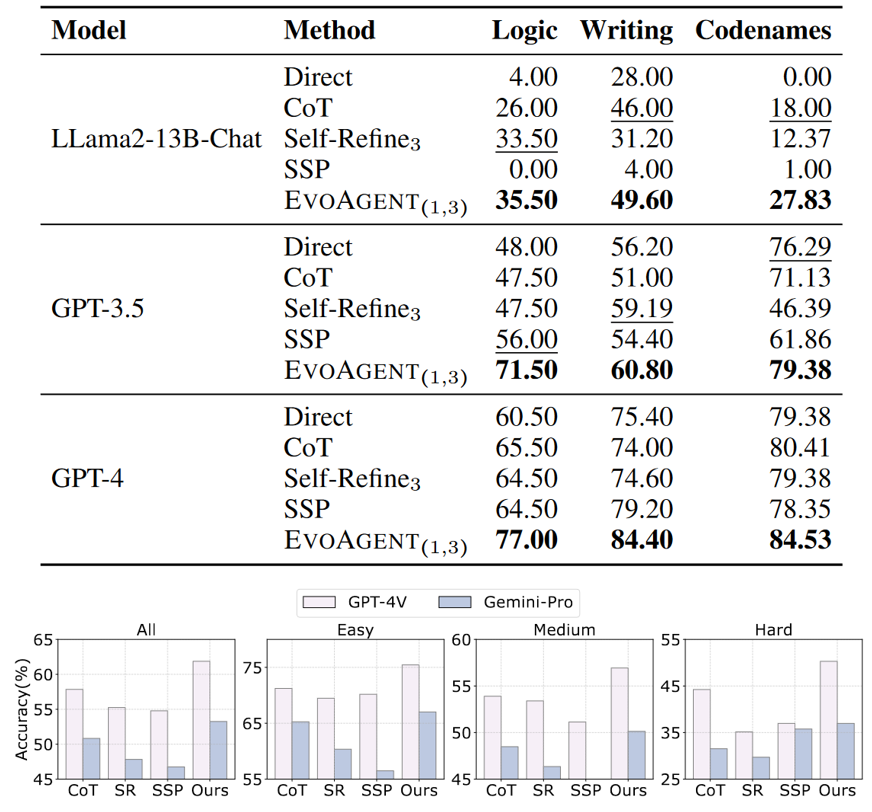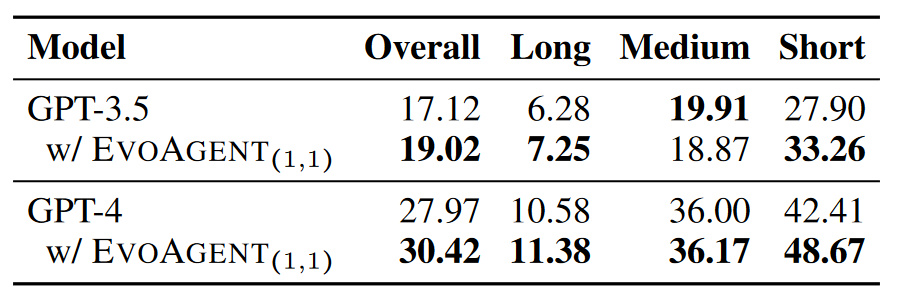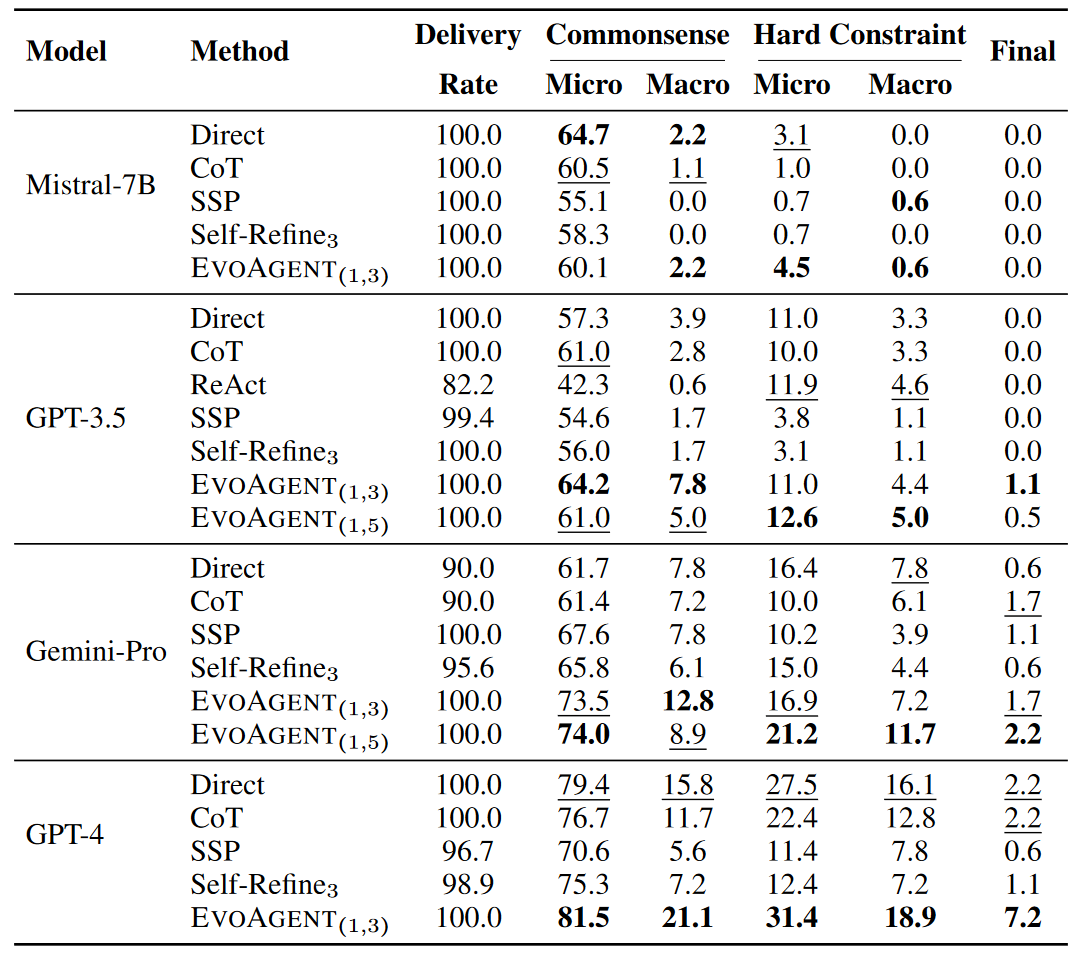EvoAgent is a generic method to automatically extend expert agents to multi-agent systems via the evolutionary algorithm.
Specifically, we consider the existing agent frameworks as the initial individual and then apply a series of evolutionary operators (e.g., mutation, crossover, selection, etc.) to generate multiple agents with diverse agent settings.

